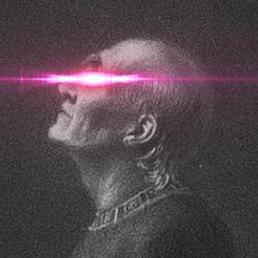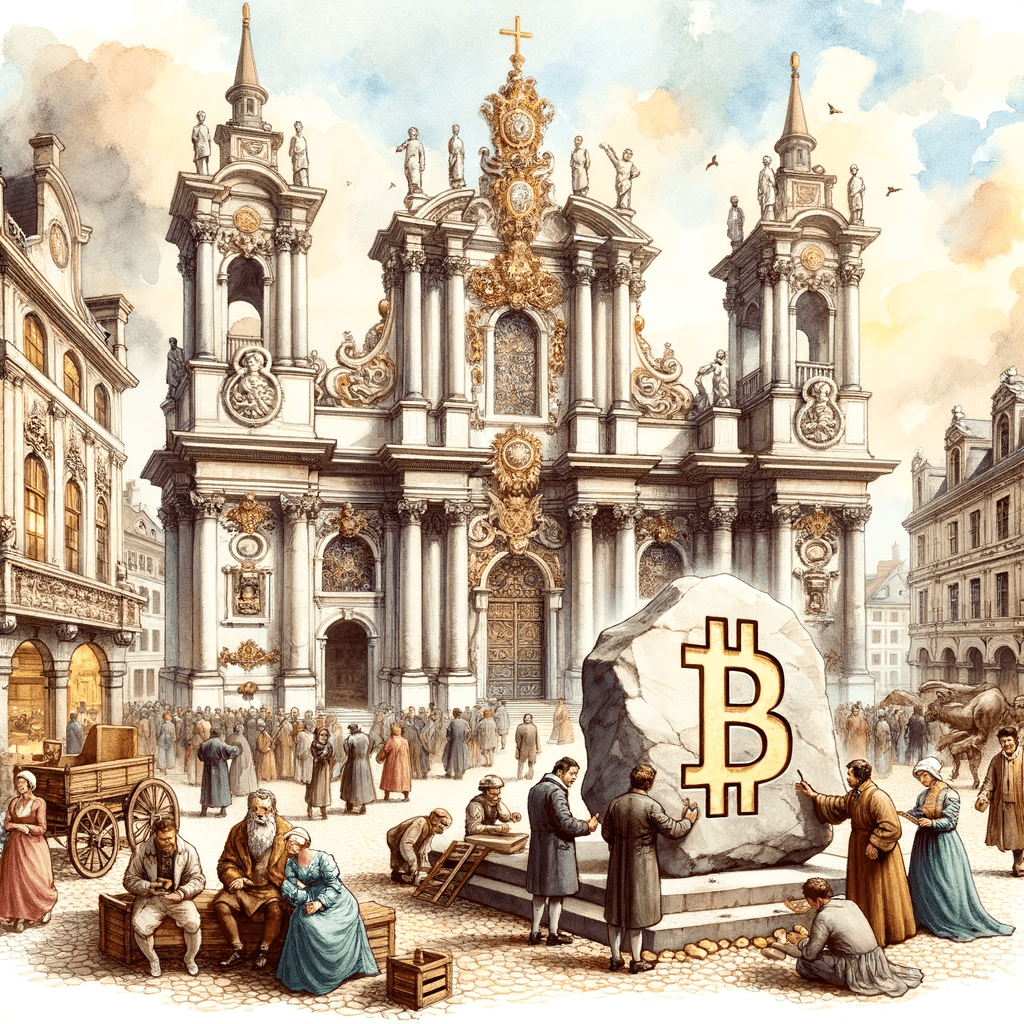quoting
naddr1qq…qkneAs every Bitcoiner knows, years of relentlessly talking about Bitcoin with friends and family will lead to many cold shoulders.
Some might argue that this is “Toxic Maximalism”—tactlessly attacking and dismissing ideas and actions that are factually incorrect or misguided—and is met with offense as a result. But I haven’t found that my experience aligns with that description. For those who don’t “get it”, years of relentlessly advocating for a single solution to every problem—Bitcoin—sounds like insanity, and thus tests the depth of the relationship itself. The refrain “I am not interested in discussing Bitcoin at this time” could literally be a plea to salvage a friendship. Some friendships do not survive. This is commonplace among Bitcoiners—it crosses languages, demographics, and geography.
Clearly, it’s not just me failing to read the room, it’s something else, something bigger that supersedes much of the premises upon which the friction arises.
It might be important to note that similar sentiments are experienced by MAGA, the Woke Mafia, BLM, and other ideological movements that demand action— I’ve heard at least a few friends now say “I had to stop hanging out with the protest crowd”. Regardless, these movements, like the Bitcoin movement, continue to gain ground. But there is one curiously missing group in this list of militants that is perhaps the original and longest-running, demands-action group: Christianity.
In fact, the only place I’ve seen this version of Christianity move and grow is reading the Gospels or surveying the long view of Church History. That Christianity, the “Church Militant”, as Chesterton calls it, is diligently on the move, capable of building schools and hospitals, cathedrals and orphanages, and conquering its very oppressors.
If anybody says that philosophic maxims preserved through many ages, or mythological temples frequented by many people, are things of the same class and category as the Church, it is enough to answer quite simply that they are not. Nobody thinks they are the same when he sees them in the old civilisation of Greece and Rome; nobody would think they were the same if that civilisation had lasted two thousand years longer and existed at the present day; nobody can in reason think they are the same in the parallel pagan civilisation in the East, as it is at the present day. None of these philosophies or mythologies are anything like a Church; certainly nothing like a Church Militant. And, as I have shown elsewhere, even if this rule were not already proved, the exception would prove the rule. The rule is that pre-Christian or pagan history does not produce a Church Militant; and the exception, or what some would call the exception, is that Islam is at least militant if it is not Church. And that is precisely because Islam is the one religious rival that is not pre-Christian and therefore not in that sense pagan. Islam was a product of Christianity; even if it was a by-product; even if it was a bad product. It was a heresy or parody emulating and therefore imitating the Church. It is no more surprising that Mahomedanism had something of her fighting spirit than that Quakerism had something of her peaceful spirit. After Christianity there are any number of such emulations or extensions. Before it there are none.
G.K. Chesterton, The Everlasting Man
This historic, fighting, traditional version of Christianity is nearly extinct, and almost all attempts to revive it result in further headlines about Christianity’s decline:
“Losing their religion: why US churches are on the decline”- The Guardian
Interestingly, the Bitcoin-induced cold shouldering from Christians is the strongest and strangest.
My tribe is Christianity and Bitcoin, so I hope I have qualified insight here. First, unlike the aforementioned movements that rely on politics, individuals, or specific groups, Bitcoin is built on impartial systems. It operates on mathematical principles, a peer-to-peer network, and doesn’t require permission from any gatekeepers.
Second, Christianity is reasonable because Gödel’s theorems suggest that there are always more things which are true than we can prove—which is to say, we must believe something, DNA and information theory make it improbable that God does not exist, and among all conceptions of God, Christianity uniquely operates on a proof-of-work basis: every other religion says “you must do this work to draw close to God” where Christianity says “God did this work to draw you close to Him”.
Taking God’s example of doing the work, Christian Tradition likewise takes initiative and examines ideas for what they are worth—if they are true, they are already Christian, because Christianity is the truth and they will help deepen the faith. Famously, in the Middle Ages, Thomas Aquinas integrated the ideas of Aristotle into Christian thought because, to simplify, he showed Aristotle’s views were fundamentally true and thus compatible with Christian teachings. And because of Aquinas’ work, it is now very hard to argue they are not.
Benozzo Gozzoli - Triumph of St Thomas Aquinas
Yet, I find that Christians rarely take this posture with Bitcoin or Bitcoiners: the Christians I’ve known do little work to understand Bitcoin or money and make nearly no effort to bridge the gap. Instead, they opt to rest on their laurels, laugh, scoff or officially rebuke on the often times wildly miss-appropriated grounds of “worshiping money”. How can they not engage?
Consider the world we live in: fiat currency, usually U.S. Dollars, which is the type of currency nearly all current Christians use, is fundamentally unchristian—it is not an honest measure, but rather a ruler made from rubber. It perpetually devalues our money, robs us of our time, and pollutes our reasoning. Collectively, this hampers Christianity’s ability to coordinate effectively over long periods of time and distances by creating confusion around value. This is precisely why we no longer build cathedrals: costly, giant, beautiful buildings, which serve no purpose but to worship God that take generations to build, have no means of creation when value is confused over long time periods—the Signal-to-Noise Ration is too low. It’s no wonder Christians do not engage with Bitcoin; the Church Militant is handicapped by fiat currency.
Cathedral of St. John the Divine, Manhattan, New York City, groundbreaking 1892, incomplete
With respect, let us take the example of God and attempt to do some quick work here to help: let’s consider Bitcoin.
Bitcoin arises out of God’s created mathematical order (cryptography), ties itself to God’s created thermodynamic order (Bitcoin mining), is not predicated on human leadership (though it uses it), and does not divide on superficial grounds, like race, but unifies (it is completely blind code). Bitcoin is like a rock with very interesting features.
Of note, those features fundamentally aligns with everything the Bible says about monetary media and the ethics surrounding trade, it is a fair and honest measure:
“You shall not have in your bag differing weights, a large and a small. You shall not have in your house differing measures, a large and a small. You shall have a full and just weight; you shall have a full and just measure, that your days may be prolonged in the land which the LORD your God gives you. For everyone who does these things, everyone who acts unjustly is an abomination to the LORD your God.”
Deuteronomy 25:13-16
And yet, inflation, which our entire modern economy is predicated on does this very thing by fluctuating the measurement of the currency, day-to-day and economy-to-economy: 1 USD (today) ≠ 1 USD (tomorrow) and 1 USD (in the US) ≠ 1 USD (in Cambodia). USD is the fundamental, at-scale epitome of differing measures, a large and a small.
Bitcoin does not do this, 1 BTC = 1 BTC for all times, places, people, languages and ideologies.
For more see: Exodus 20:15 Leviticus 19:11 Leviticus 19:35-36 Deuteronomy 25:13-16 Proverbs 11:1 Proverbs 16:11 Proverbs 20:10 Amos 8:4-5 Micah 6:10-11 Hosea 12:7 Ezekiel 45:10-12 Ephesians 4:28 Colossians 3:9-10 2 Corinthians 8:21 Matthew 7:12 Luke 16:10 James 5:4 Matthew 23:23 James 2:6 Luke 12:15 1 Timothy 6:10 Romans 12:17 Isaiah 1
Lastly, to tie this view to Christian tradition, C.S. Lewis summarily calls out our current economic system which is predicated on debt and inflation in Mere Christianity:
Now another point. There is one bit of advice given to us by the ancient heathen Greeks, and by the Jews in the Old Testament, and by the great Christian teachers of the Middle Ages, which the modern economic system has completely disobeyed. All these people told us not to lend money at interest: and lending money at interest—what we call investment—is the basis of our whole system. Now it may not absolutely follow that we are wrong. Some people say that when Moses and Aristotle and the Christians agreed in forbidding interest (or “usury” as they called it), they could not foresee the joint stock company, and were only thinking of the private moneylender, and that, therefore, we need not bother about what they said. That is a question I cannot decide on. I am not an economist and I simply do not know whether the investment system is responsible for the state we are in or not. This is where we want the Christian economist. But I should not have been honest if I had not told you that three great civilisations had agreed (or so it seems at first sight) in condemning the very thing on which we have based our whole life.
It is worth noting three things here:
- When Lewis comments on the ancient heathen Greeks, the Jews in the Old Testament, and the great Christian teachers of the Middle Ages, he is not speaking mater-of-factually, he is speaking as one of the preeminent authorities to address the topic.
- This quote is in Mere Christianity, a book titled as such because Lewis wrote it to capture what every sect of Christianity holds in common: Catholic, Protestant, Orthodox or otherwise. None of this should be controversial.
- What is controversial is the conspicuous void where the “Christian economist” is concerned. A cursory search of seminaries, colleges, universities, institutes, foundations, or think-tanks which might offer degrees, research, mind-trusts, or specializations in Christian Economics is sparse. The search is still ongoing for any that have addressed USD as an unjust measure, and Bitcoin as an honest one.
Until then, it is also worth asking, where does this “demand for action”—the kind of action that prevents us Bitcoiners from being still—come from in Bitcoin, if not from a group, a person, a party, or an ideology? It comes from understanding Bitcoin. That’s it. That is what makes it transcend language, demographics, geography, and ideology. There are only a few things that can do that, and most of them belong to God’s created order: matter, energy, information. When a boulder rolls down a mountain in your direction, it, too, demands action. As an aside, you can use bitcoin nefariously, but so too can you use a rock nefariously, arguments there are a dead end.
Let us move forward with the assumption that Bitcoin is fundamentally acceptable to Christianity, similarly to how the works of Aristotle are fundamentally acceptable to Christianity.
One of the most popular hymns of all time, “Be Though My Vision”, has lyrics traditionally attributed to Saint Dallán Forgaill in the 6th century. The English version we are familiar with today was translated in 1912, but, notably, the English Methodist version from 1964 omits verse three. A casual reading of that omitted verse will explain why:
Be Thou my battle Shield, Sword for the fight;
Be Thou my Dignity, Thou my Delight;
Thou my soul’s Shelter, Thou my high Tow’r:
Raise Thou me heav’nward, O Pow’r of my pow’r.
Fifty years into the fiat experiment, the Church Militant was fast asleep. Two fiat-backed World Wars had exhausted it, and fiat itself had confused it. The high Tow’r building of the Church Militant had ceased. For 100 years now, the church has been unable to lead humanity. This is why and how the Woke Mafia and MAGA have infiltrated vast numbers of churches—these churches have no Great Commission to serve, they can hardly organize around serving meals, and need help from outside-sponsored sources (like The Current Thing™ and 501©(3) status) just to stay alive.
And there was much rejoicing for all who hated reason, who hated what was good, who hated the church and wished death to all Christians, for The Church had become silent.
But now, Bitcoin, a rock, a member of God’s created order, is beginning to cry out, waking us up from our long slumber. Indeed, it is true, “if these stop speaking, the very stones will cry out!”
Whether or not you ever come to understand Bitcoin, know that understanding it will compel you to act. Maybe you think you do not need to understand it, and perhaps you don’t. But you should also know, information is a one way street, humanity does not un-learn technology. There will only ever be more and more people who understand Bitcoin, and none of them will rest until it is the only money humanity uses. More than just a handful of these people will be Christian, and they will contribute to the rekindling of the Church Militant. It will be funded and financed by the best money ever discovered, a money that looks further into the future than any other money ever could, indeed it already has Eternity in view and people are getting saved because of it.
Bitcoin is proving to be a tool of evangelism, as @pastorcoin notes, many in the space are asking, “If Bitcoin is true, and truth thus exists, what else is true?” And they are finding Jesus answered, “I am the way and the truth and the life. No one comes to the Father except through me.”
Why #Bitcoin is often the catalyst for becoming a Christian. A theory on a strange phenomenon I have witnessed.
— Pastor Coin (@pastorcoin) October 25, 2023
I get messages almost weekly from people who testify that they were just baptized and became Christians and #Bitcoin was the catalyst.
This baffled me. How does… pic.twitter.com/R6QvrUyfg3The greatest revival in church history is now knocking at our door. It is said, and said well, Thank God For Bitcoin.
Old Father Latimer, a Christian Militant like no other, on the morning of October 16, 1555, in Oxford, fighting for Christianity in England, said some of the most powerful words in Christendom as he valiantly faced his death at the stake, words which still reverberate today:
“Be of good comfort, Master Ridley, and play the man. We shall this day light such a candle by God’s grace in England as I trust shall never be put out.”
We will adapt these famous words here:
“Be of good comfort, fellow Christian Bitcoiners, and play the man. We shall this day light such a candle by God’s grace on Earth as I trust shall never be put out; but I am not interesting in discussing Bitcoin at this time, indeed, we have cathedrals to build.
GildedPleb on Nostr: My latest, enjoy! ...
My latest, enjoy!



